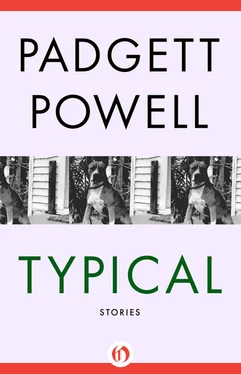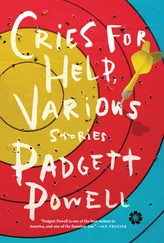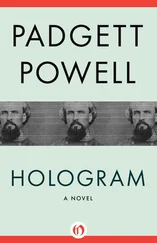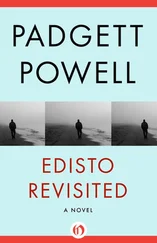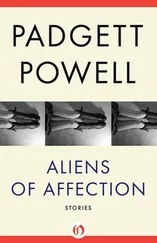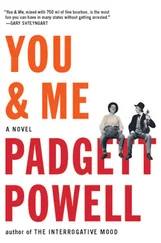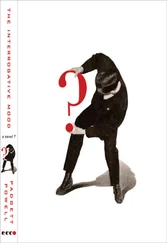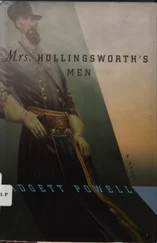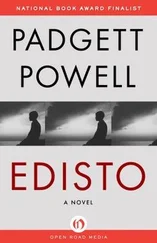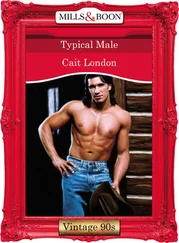Almost.
FROM A LINE OF FAMOUS men I am, and of armoire and men I sing, and my father doesn’t have a goddamned thing to do with it.
My coffee cup leaks! The girl, if you think she’d check to see if the cups leak at the takeout. No. And walk eight blocks without noticing, without the cup falling through the bag. If my father had a goddamned thing to do with it, he doesn’t now, and I’d like to see the bastard who will say it to my face.
An excellent wool blazer contravenes the wit of planned obsolescence to the utmost. An excellent wool blazer nearly obviates, forever, the new wool blazer. Do you think my father had a goddamned thing to do with it? I don’t even think his father had a goddamned thing to do with it. The Wall Street Journal may well be an excellently written paper but I do not find it helpful. It is of marginal use to me. I don’t care for it. I don’t care to be buzzed, either. We can, if we want to, stem the tide of technological tackiness, we can have the girl just get up and knock and lean in, or present herself with dignity and inform you that someone wishes to speak with you on the string and Dixie cup. What is so wrong with that? Do you think I’d stay here if my father had a goddamned thing to do with it? Stay? Remain? Hold prideless untenable sinecure when of I sing … really, there’s nothing wrong with lineage, that is how you win the Kentucky Derby and the only way you win the Kentucky Derby — if my father had a goddamned thing to do with it I’ll eat … Mister Donut here, I’ll eat that box of Mister Donut. She got the white, choke you to death you breathe wrong, High-Level Corporate Exec Dies of Inhaling 10X Confectioner’s Sugar, Wall Street Journal, page 6. If my father had a goddamned thing to do with it, it’s water over the bridge now, spilled milk under the dam. Anybody who tells you he did is a high-water asshole who’s jealous. How could he have had a goddamned thing to do with it if I tied his shoes for him, in the end? When you tie an old man’s shoes, he does not have a goddamned thing to do with it. Not a god damned thing.
There are times in my life when I wonder what is the struggle for, what is the sacrifice all about. There are considerations beyond the simple and obvious question of why are we nonprofit. They go deeper than that. They go all the way to the foundation of altruism itself. I wonder about that. I seriously pause some days — is it worth it? If there was a shade of truth that my father, whom I see to this day in his pajamas and untied shoes ready for me to get him ready for a board meeting, too embarrassed to have anyone but me know, had a goddamned thing to do with it I’d quit, naturally, quickly spontaneously and combustively with vigor dispatch and hortatory glory of distinguished men from good clubs and better backgrounds breeding will out, out, out, he had not a thing to do with a thing, not a whit with a whit, or I’m a monkey’s uncle, and I’m not a monkey’s uncle.
Miss Jacobs, please come get this coffee mess off my desk, prepare to retrieve lunch, Russian dressing on roast beef, and inspect the cups well before you take one step toward this office bearing liquids of any kind, is that clear, is it understood, is it clearly understood?
On thin ice, Miss Jacobs, Mizz Jacobs, her predecessor having had the misfortune to abuse the string and Dixie cup and be overheard remarking “gives the air of a man perpetually emerging from a barbershop” (she had literary aspirations, I’m afraid) — I asked who has the air of a perpetual emergent from a tonsorial parlor and she blushed. You understand. Let her go, let her go, let her go. Had to, had to, had to.
LISA SMOKED HER FIRST Bingo card unnoticed. She coughed, coughed considerably, but not as much as one might expect smoking cardboard, and her condo neighbors could hear her coughing through the walls, but it sounded not unlike their own rheumy hacking and gasping and they never fathomed she had taken to smoking her Bingo cards. She never won at Bingo and the decision to smoke the losing cards — not just burn them — was a deep, involuted response to her lack of luck.
She had a mynah bird that did not talk and that had lost so many feathers to his ineradicable mite problem that he looked more like a desert lizard than a bird.
Her refrigerator would regularly fail to close by one-quarter of an inch, which was enough to perish the perishable and the compressor.
Her curtain rods sagged in the middle so badly that her drapes slid from the sides of her windows into the middle of the span.
One day four of forty hair curlers refused to let go and she had to use scissors to get them out.
She had a beautiful daughter.
She could no longer effect a long-distance phone call.
The television one day blinked and then showed her a tiny, shrinking, green pupil in the middle of the dark screen. The repairman, whom she secured by yelling at as he drove down the street, said he could not fix her set.
“Why not?” she asked.
“It’s tubes,” he said.
Potatoes were a staple of her diet. One day she experimented with how potatoes bounce on linoleum. They bounce pretty well and are not damaged much.
Toast impressed her as a waste of time. Bread was already cooked; you eat it or you do not.
Socks, likewise, seemed superfluous, if one has shoes.
She liked football and was absolutely certain that she could have been an excellent off-tackle slant-type power runner in a wishbone or two-back set. 44 was her number.
Forty-four was her bra size, too. This had held her back in life, she felt.
The salt air outside had corroded the aluminum frames of her windows to the point she was afraid to open them for fear of not being able to close them. They, the frames, had little white pocks on them, reminiscent of chenille.
Under her sink was a rattrap she could not set, for her nerves, and a rat. She baited the trap for him and fed him, safely and humanely, from the harmless little copper bait seesaw. She wondered if the rat knew she knew the trap was just a … just a whatever a sprung trap you continue to bait is. Perhaps he thought it a rather cruel thing to do, or maybe he got a kick out of it, or maybe he just ate the cheese, period. It was hard to know what a rat thought. Once, she put a small wad of wet toilet paper on the bait seesaw and he ate that, too, or at least took it off somewhere with him. All in all, she thought of him as a good sport, a good sport under the sink, and took comfort in it. She resisted the idea that he ate in fear, held his breath before biting the cheese. But she resisted equally the notion of feeding him on a saucer instead of the little bait seesaw — that was openly feeding a rat. He was not a dog. The rat under the sink was not a dog. The rat under the sink who could eat on a guillotine and find a use for or even eat toilet paper was not a dog. You could discover what a dog did with toilet paper, wet or dry. A dog is no rat. The rat is in possession of a dignity of desperation, and not the dignity of desperation, for there are many dignities of desperation. There is the desperate dignity of smoking the Bingo card which represents your millionth consecutive loss at Bingo, which is not even a true gamble. There is the desperate dignity of sweltering in your apartment with its closed windows because the event of window-frame failure, caused by electrolytical erosion of aluminum, will admit of the whole, giant ocean but blocks away and of all the destructive power of the sea, its swallowed cargoes and lives and lighthouse failures and fogs and seas higher than ships and icebergs and scurvy and sailors spreading syphilis and the entire trunk of doom that is Davy Jones’s locker two blocks away. This is just one of hundreds of desperations of dignity, not opening your windows.
Читать дальше
